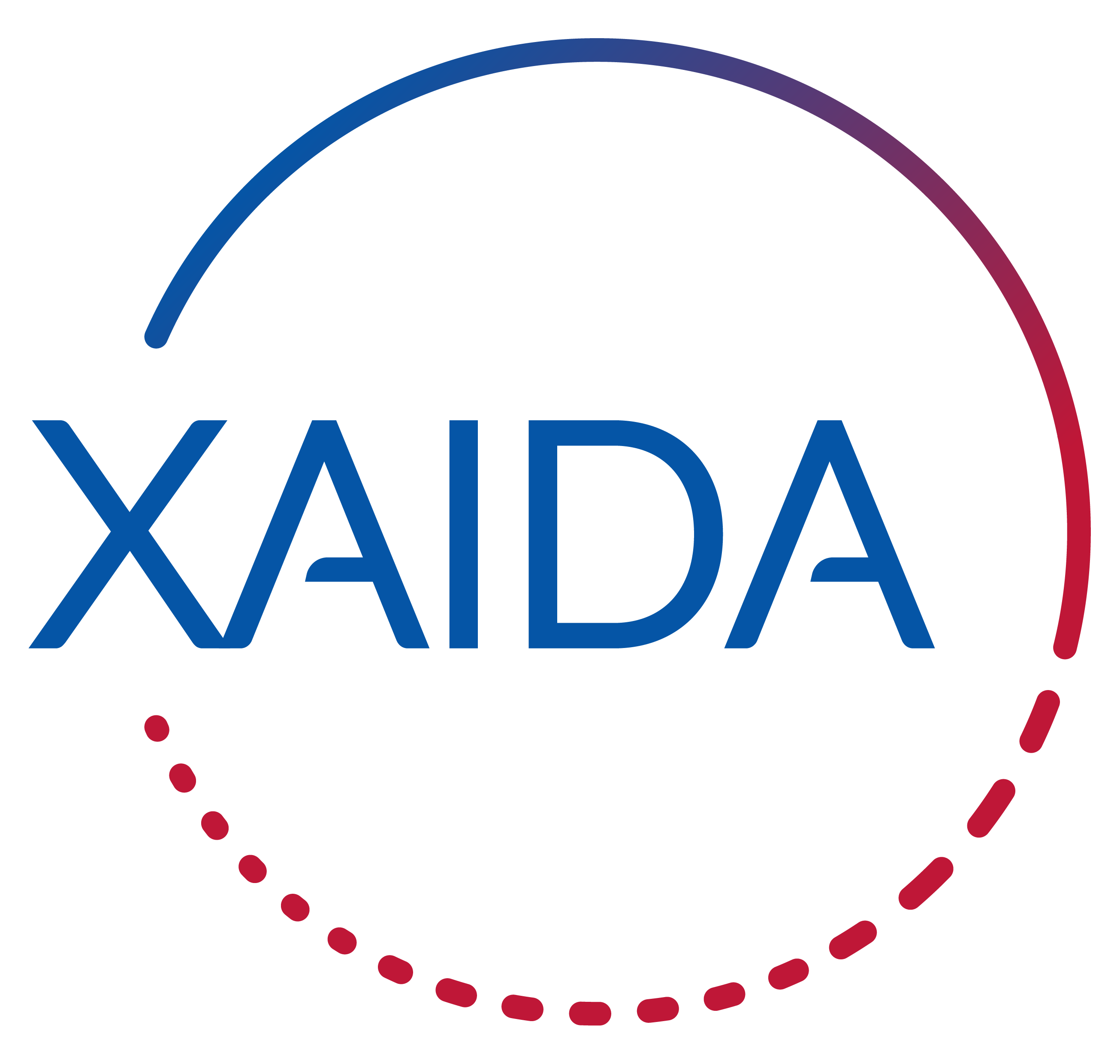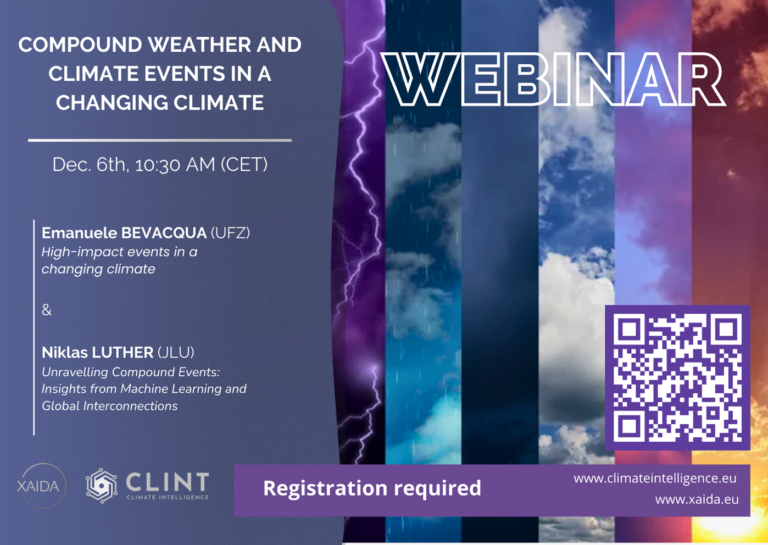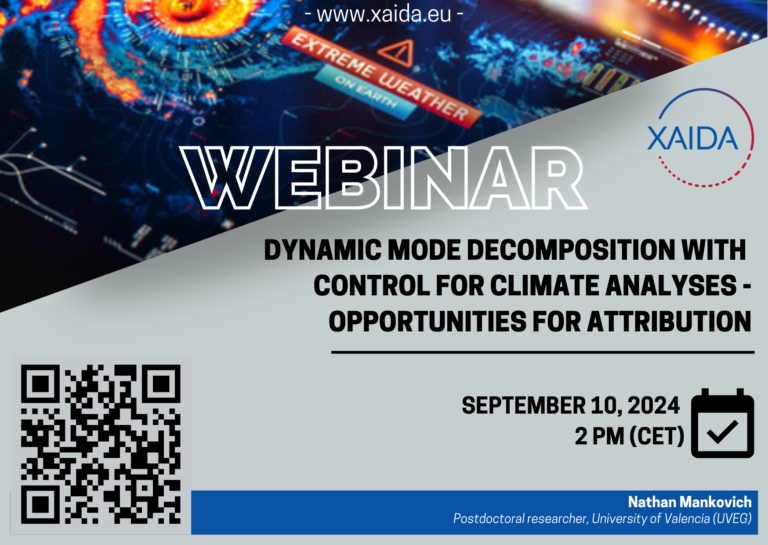XAIDA WEBINAR | BROADENING THE SCOPE OF ANTROPOGENIC INFLUENCE IN EXTREME EVENT ATTRIBUTION
XAIDA is now hosting an open monthly webinar. Within the XAIDA project, sixteen research institutes and climate risk practitioners, aim to develop and apply novel artificial intelligence methods to better assess and predict the influence of climate change on extreme weather. Join the webinar each month to dive into interesting topics such as machine learning for climate extremes, the societal impact of extremes, and education about climate change.
Coordination: Manon Rousselle (IPSL)

February 18th, 2025 at 2 PM (14:00) CET
Speaker: Aglaé Jézéquel, Lecturer at Laboratoire de Météorologie Dynamique (LMD), Institut Pierre-Simon Laplace (IPSL), ENS, ENPC.
Title: Broadening the scope of antropogenic influence in extreme event attribution
Abstract: As extreme event attribution (EEA) matures, explaining the impacts of extreme events has risen to be a key focus for attribution scientists. Studies of this type usually assess the contribution of anthropogenic climate change to observed impacts. Other scientific communities have developed tools to assess how human activities influence impacts of extreme weather events on ecosystems and societies. For example, the disaster risk reduction (DRR) community analyses how the structure of human societies affects exposure, vulnerability, and ultimately the impacts of extreme weather events, with less attention to the role of anthropogenic climate change. In this perspective, we argue that adapting current practice in EEA to also consider other causal factors in attribution of extreme weather impacts would provide richer and more comprehensive insight into the causes of disasters. To this end, we propose a framework for EEA that would generate a more complete picture of human influences on impacts and bridge the gap between the EEA and DRR communities. We provide illustrations for five case studies: the 2021–2022 Kenyan drought; the 2013–2015 marine heatwave in the northeast Pacific; the 2017 forest fires in Portugal; Acqua Alta (flooding) events in Venice and evaluation of the efficiency of the Experimental Electromechanical Module, an ensemble of mobile barriers that can be activated to mitigate the influx of seawater in the city; and California droughts and the Forecast Informed Reservoir Operations system as an adaptation strategy.
Registration: xaidaproject@gmail.com






